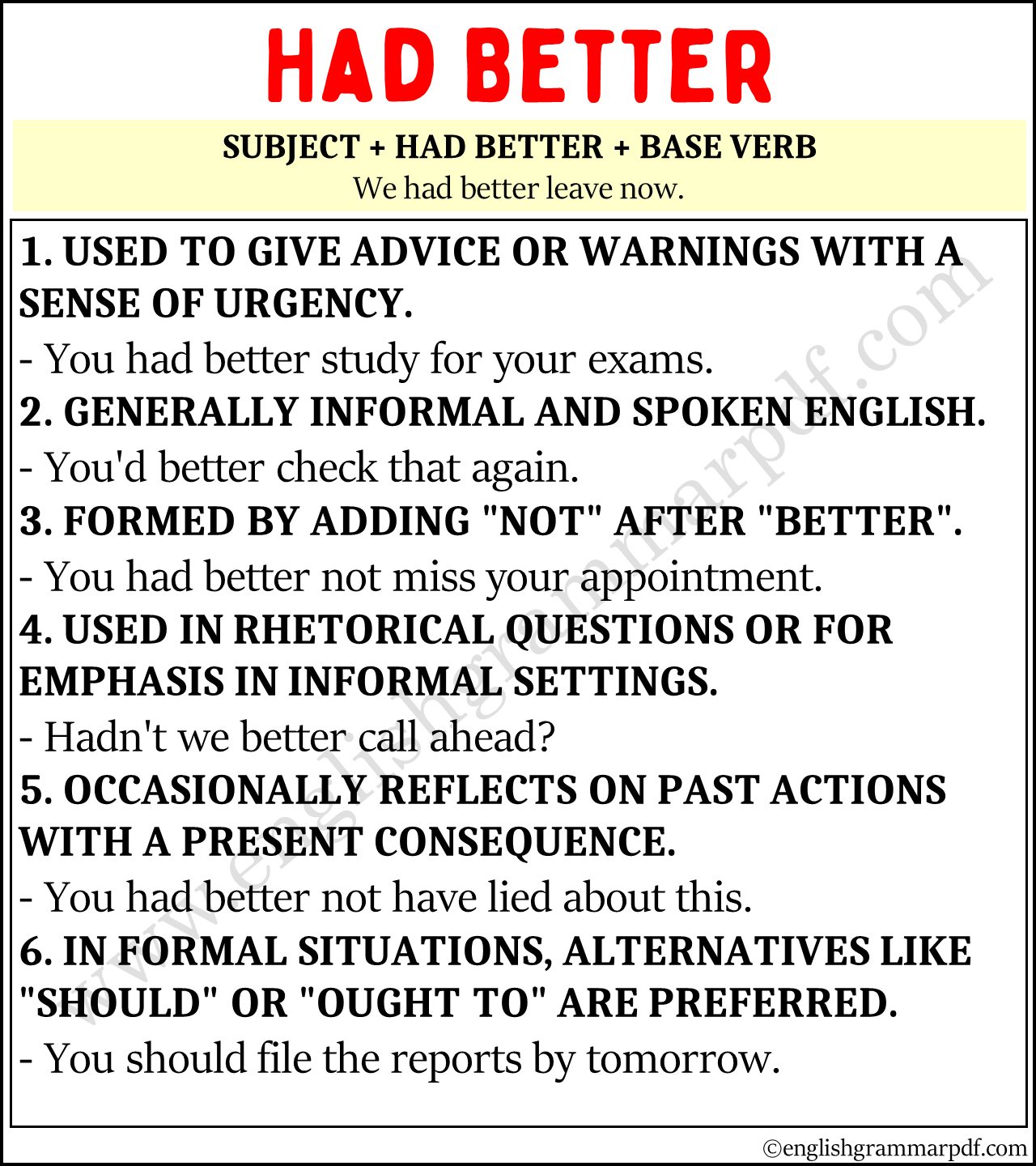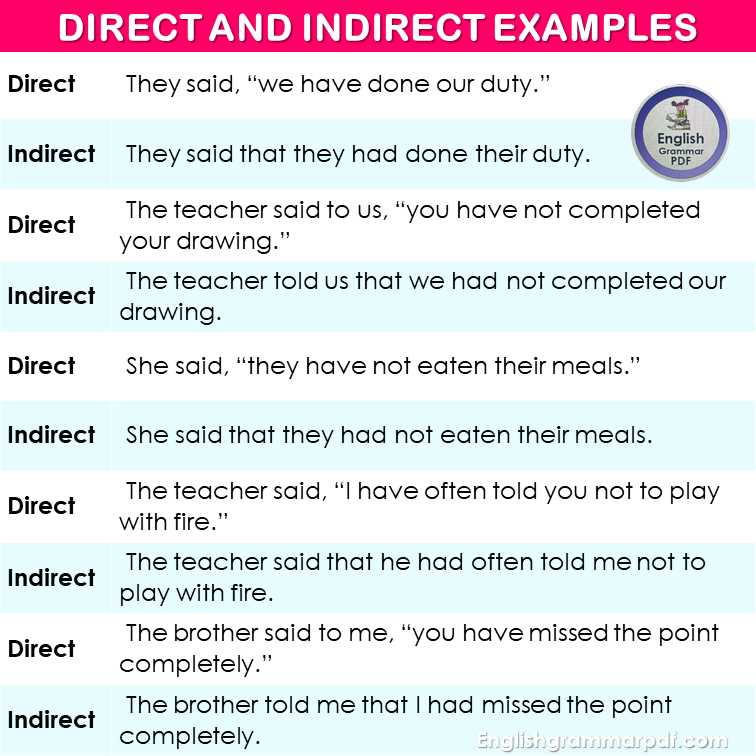The phrase “had better” is a common English expression used to give advice or recommend actions that seem necessary or desirable. It carries a sense of urgency or importance, suggesting that there are consequences for not following the advice. Here, we will explore the various contexts and nuances of using “had better” to help you master its usage.
Also Read: 50 Examples of Question Tags in English
Basic Structure
The basic structure of “had better” follows this pattern:
- Subject + had better + base form of verb + (optional other elements)
Examples:
- You had better leave now.
- They had better check the results again.
1. Giving Strong Advice or Warnings
“Had better” is often used to give advice that implies a warning or a negative consequence if not followed:
- You had better save some money for emergencies. (Implying there might be financial problems if you don’t save)
- He had better apologize soon. (Implying there might be repercussions if he doesn’t apologize)
2. Urgency and Immediacy
This expression is particularly useful when the advice pertains to something urgent or needing immediate attention:
- We had better finish this project by tonight.
- You had better see a doctor immediately.
3. Informal Contexts
“Had better” is generally used in informal situations. It’s common in spoken English and casual writing, but less appropriate in formal writing:
- You’d better fix that mistake before submitting the report. (Casual)
- It is advisable to correct that mistake before submitting the report. (More formal alternative)
4. Negative Forms
The negative form of “had better” involves adding “not” after “better”, usually contracted to “better not” in spoken English:
- You had better not tell anyone about this.
- She’d better not miss the meeting.
5. Questions and “Had Better”
Questions using “had better” are less common and can sound a bit awkward or overly authoritative. They are typically rhetorical or used for emphasis in informal speech:
- Hadn’t we better check the weather before we leave?
- Had I better call them first?
6. Past Situations
While “had better” generally refers to present or future actions, it can sometimes reflect on past events where a better action could have been taken:
- You had better not have eaten all the cookies! (Here, it’s used to express a strong hope or expectation about a past action.)
7. Variations in Formality
In more formal contexts, alternative expressions like “should” or “ought to” might be more suitable:
- You should ensure all documents are submitted on time.
- It would be prudent to consult a lawyer.



